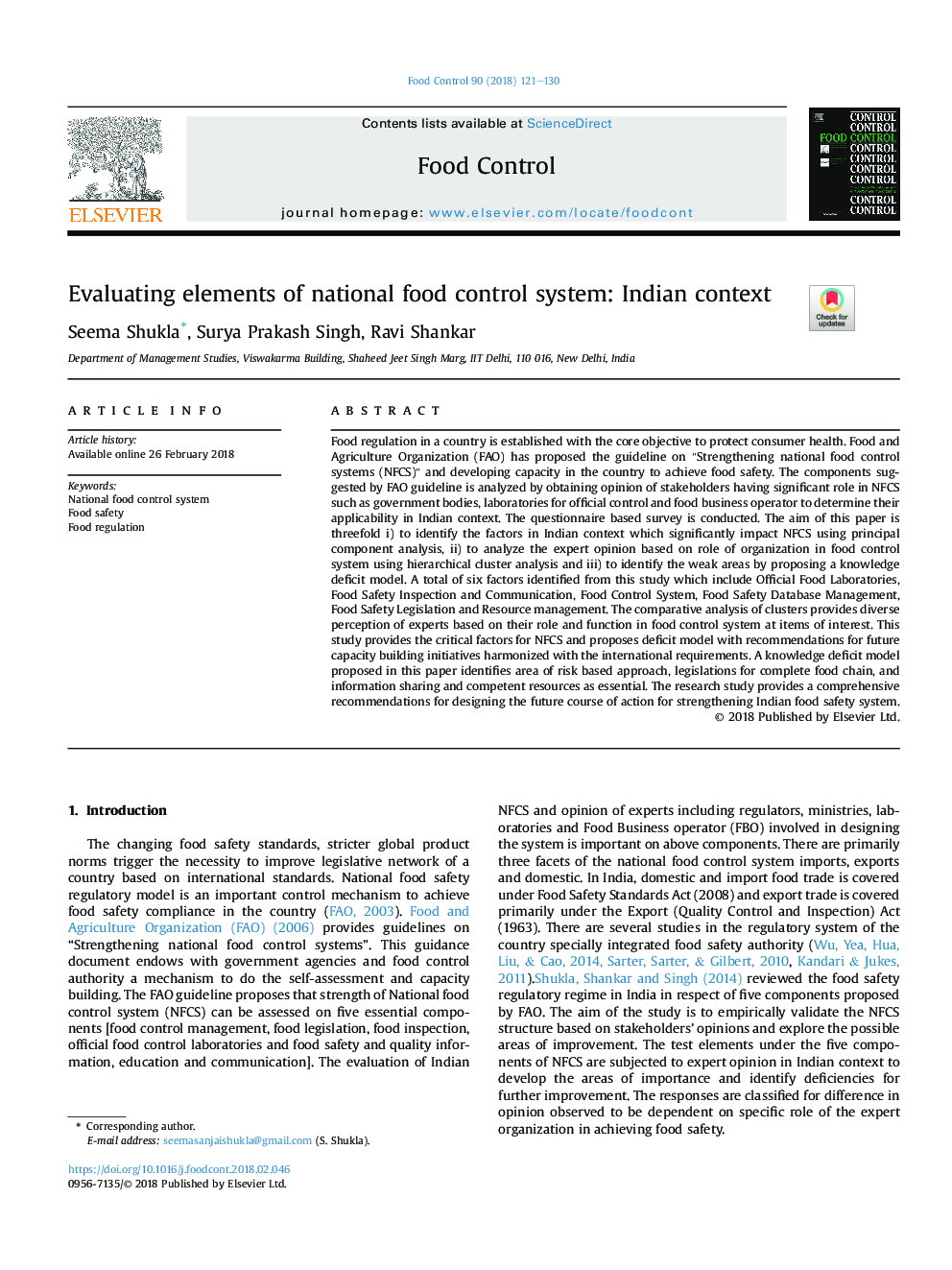| Article ID | Journal | Published Year | Pages | File Type |
|---|---|---|---|---|
| 8887942 | Food Control | 2018 | 10 Pages |
Abstract
Food regulation in a country is established with the core objective to protect consumer health. Food and Agriculture Organization (FAO) has proposed the guideline on "Strengthening national food control systems (NFCS)" and developing capacity in the country to achieve food safety. The components suggested by FAO guideline is analyzed by obtaining opinion of stakeholders having significant role in NFCS such as government bodies, laboratories for official control and food business operator to determine their applicability in Indian context. The questionnaire based survey is conducted. The aim of this paper is threefold i) to identify the factors in Indian context which significantly impact NFCS using principal component analysis, ii) to analyze the expert opinion based on role of organization in food control system using hierarchical cluster analysis and iii) to identify the weak areas by proposing a knowledge deficit model. A total of six factors identified from this study which include Official Food Laboratories, Food Safety Inspection and Communication, Food Control System, Food Safety Database Management, Food Safety Legislation and Resource management. The comparative analysis of clusters provides diverse perception of experts based on their role and function in food control system at items of interest. This study provides the critical factors for NFCS and proposes deficit model with recommendations for future capacity building initiatives harmonized with the international requirements. A knowledge deficit model proposed in this paper identifies area of risk based approach, legislations for complete food chain, and information sharing and competent resources as essential. The research study provides a comprehensive recommendations for designing the future course of action for strengthening Indian food safety system.
Keywords
Related Topics
Life Sciences
Agricultural and Biological Sciences
Food Science
Authors
Seema Shukla, Surya Prakash Singh, Ravi Shankar,
